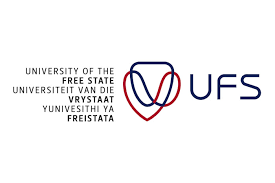University of the Free State: UFS puts first solar-powered vehicle on the road
It is almost three years after Team UFS first decided to put a solar-powered vehicle on the road. Within a few days, this dream of participating in the international Sasol Solar Challenge will become a reality when they depart from Carnival City in Johannesburg on 9 September 2022.
For the challenge, the team of ten members will stop at six points between the departure point and the V&A Waterfront in Cape Town, where they will arrive on 16 September 2022.
Completing the estimated distance of 2 500 km
“The team that finishes with the greatest distance covered within the allotted time, will win the challenge,” says Dr Hendrik van Heerden from the UFS Department of Physics and project manager of Team UFS.
The UFS, which has entered its solar-powered vehicle, Lengau (meaning Cheetah in Sesotho), will compete against more than 11 other teams, both local and international.
Dr Van Heerden’s two main objectives in entering the challenge, are to build a solar-powered vehicle robust enough to complete the estimated distance of 2 500 km during the 2022 Sasol Solar Challenge. Furthermore, he aims to establish capacity in the students and staff through acquired practical knowledge on the management, design, construction, and actual racing of solar-powered vehicles, which is to form the basis for participation in future projects and event competitions.
Bringing together expertise from the UFS Departments of Physics, Engineering Sciences, Computer Sciences and Informatics, Electronics and Instrumentation, and Geography, the team of 23 started with the construction of their vehicle on 18 October 2021.
Just over 10 months later and the car is fully functional, already passed a few road tests, and the crew is ready for the big challenge ahead.
The three drivers, Albert Dreyer, Monica van der Walt, Denver de Koker, together with back-up driver Lukas Erasmus, will travel on public roads via a predefined route over eight days, driving every day between 07:30 and 17:00. The aluminium-frame vehicle will weigh up to 370 kg, including the frame, the five solar panels, and the driver, and can reach a maximum speed of 60 km per hour (they aim to average 45 km/hour).
According to the Sasol Solar Challenge rules and regulations, no driver is allowed to drive for longer than two hours. The capacity of the batteries and the availability of sun will determine how often the drivers will need to stop to recharge the solar batteries.
Popularising electric vehicle technologies
This is the first time that Team UFS will be participating in the Sasol Solar Challenge. A guardedly optimistic Dr Van Heerden says their goal is to complete the full distance without breakages, and to accumulate as much knowledge and information as possible. With the next Sasol Solar Challenge in two years’ time, they plan to enter again.
“Our long-term aim is to continually improve on the design, technology, science, and project implementation to participate in events and challenges around ‘green’ energy and relevant technologies. An additional aim is the popularisation of electric vehicle (EV) technologies through outreach programmes,” says Dr Van Heerden.
Prof Koos Terblans, Head of the Department of Physics, says one of the key benefits of this project was that the group, consisting of personnel and students from different departments, learned to work together as one team. “Together, they worked and made plans to collect and apply the maximum amount of energy. Looking at the bigger picture, they are solving a worldwide problem, that of harvesting and applying energy. I am very excited that they have come this far; this is a first for the university.”

